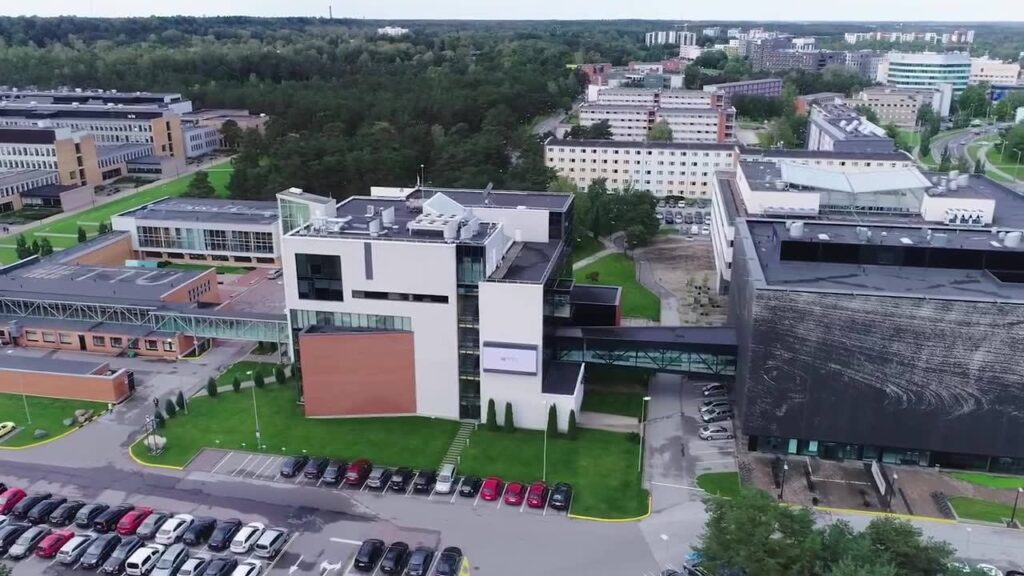Around 300 foreign students have been deprived of opportunity to study at Tallinn University of Technology or as it’s known, TalTech – for reasons still murky and properly unexplained by the university; in explaining the decision, TalTech has been deceptive and uses a discriminatory language, damaging Estonia’s reputation as a study destination, Joonatan Allandi writes.
TalTech has made the decision to ban foreign students from countries with high risk of coronavirus or those with inaccurate statistics. The ban affects a few hundred international students, both those who are coming to Estonia for the first time to study, and those who left home for summer vacation and now wish to return to their studies.
I have had the privilege to study abroad and I can confirm – it is life-changing. A banal statement, perhaps, but it explains my drive to follow the struggle of around 300 foreign students who have been deprived of this opportunity by TalTech. The students are angry. Disappointed. Deceived.
Meanwhile, TalTech’s vice rector, Hendrik Voll, has difficulty talking about feelings. I am referring to his recent statement in a local Tallinn newspaper: the university is not affected by “emotional” complaints from applicants who were made offers yet rejected after they had confirmed their attendance. With this, TalTech downplays both the concern of third-country students and the right of everyone to receive appropriate explanations for the unfair treatment they have received.
Voll’s choice of words also influences the reader, who might not be well-versed in the topic, to think that the university’s debate partners are a group of overly resentful people with whom a reasonable dialogue cannot be established. But, having become acquainted with the case of these students, I am also overcome with feelings. Bewilderment, mainly.
TalTech’s “public health concern” is deceptive
In the beginning of July, the Estonian foreign ministry stated that all foreign workers and students, regardless of citizenship or their so-called risk background, are allowed to enter Estonia if they comply with self-isolation requirements, when applicable. The general responsibility for overseeing this was left to the employer or institution, although the education minister, Mailis Reps, emphasised the personal culpability of students coming to Estonia from high-risk countries.
However, TalTech’s senate was so overwhelmed that third-country applicants for bachelor’s and master’s programmes were rejected on the grounds of “public health concerns”. One would think the government guidelines (isolation and so on) are in place to mitigate this very danger. But the thought of extracurricular responsibilities is never a particularly pleasant one, I’ll give TalTech that.
The university’s heroic claim to protect public health is impressive, but deceptive. And this is when things get odd. TalTech refuses to “take responsibility” for “high-risk” third-country students, yet happily matriculates applicants from the EU, even if the infection rate puts them in a high-risk category.
In all fairness, the Estonian foreign ministry does include a few non-EU countries on its “safe” list, and TalTech happily matriculates them as well. Yet the veiled assumption that an Estonian student returning from holiday in a high-risk country or a student entering Estonia from a high-risk EU member state is somehow more capable of following Estonia’s public health standards than a student from a high-risk third country is, to put it mildly, uncomfortable.
It should be noted that, having regrouped for a day or two, disappointed applicants launched a petition in which they confirmed compliance with the isolation requirements in place in Estonia, among other suggestions to relieve their sudden predicament.

Not my job, not my concern
Many may be thinking here: why should I care about the “feelings” of third-country students? I will not reprimand you for xenophobia because, unfortunately, it is rather obscure to grasp the scope of their concern, or to seek a fair solution, even on a legal level.
Petitioners filed a complaint to Estonia’s Commissioner of Equality only to learn that their issue is a narrow matter of “citizenship” and does not fall within their jurisdiction (discrimination based on “nationality/ethnic origin”). Not my job, not my concern —Estonian officials in a nutshell.
Yet our constitution states that no one can be discriminated against based on their origin, among other things. Similar, if not broader, principles are also enforced by the European Convention of Human Rights and, at least on paper, these values are declared by all Estonian public universities — including TalTech. I sincerely hope that, despite the summertime lull, the officials who are commissioned to pursue fair treatment in Estonia are not deliberately turning a blind eye to the glaring problem at hand: we are mistreating the students from third countries on dubious grounds.
A text-book discriminatory language
TalTech’s chain of excuses is reinforced with most questionable utterances. For example, its vice rector publicly paints a picture of non-EU countries as peripheries with weak infrastructure, dragging all other countries down a dimly lit path with their incompetence:
“The capacity of these countries and students for digital solutions is not so good that they can ensure a high-quality connection. In addition, we do not imagine that students communicating remotely will be able to accompany, ask, discuss and debate with students that are present. In that case, the students who are present would also suffer.” (Tallinn’s municipal newspaper, Pealinn, 25 July).
This is text-book discriminatory language. Such statements can skew public opinion to the detriment of not only third-country students but also, indirectly, future students from those countries and, ultimately, all residents of Estonia who could be originating from “these countries”. But I’ll leave the rhetoric up to each and everyone’s personal sensitivity.

Causing chaos to hundreds of lives
In addition to sowing cultural damage, TalTech’s decision spurs third-country applicants into palpable chaos. Most European universities are adopting distance learning. TalTech does not agree to this.
However, I have received a great deal of evidence of correspondence between applicants and TalTech in which its admission office presents the possibility of online studies — until travel restrictions are eased. On this basis, many students kept the university’s offer and made significant changes in their personal lives in order to comply (student loans, resignations from work, refusing offers from other universities). Now they are at a standstill.
Let me change the tone for a minute. Let me give TalTech the benefit of the doubt. Perhaps unfulfilled promises could be blamed on TalTech’s secretaries? Naturally, the raging pandemic raised all too many alarming questions and, to reassure applicants, TalTech’s innocuous copy-paste response happened to be “we are looking for alternatives”. Nothing definitive. However, TalTech’s public statements significantly decrease the possibility of misinterpretation:
“Due to the emergency situation, students have to wait longer for their visas. The process has usually taken a month and a half, but now it is estimated that it could be closer to three months,” the vice rector [Hendrik] Voll said, adding that some students have to start studying remotely, and TalTech has taken this into account. Voll specified that distance learning could be applied at least until the end of October (Estonian Public Broadcasting, 26 May).
In this light, it is difficult to absorb TalTech’s current reasoning:
“Studying at TalTech means a lot of practical work that can’t be done online. TalTech definitely does not want to artificially manufacture diplomas,” Hendrik Voll emphasised (Estonian Public Broadcasting’s Vikerraadio, 24 July).
TalTech’s arguments are not exactly convincing if applicants were made specific references to alternatives and it wasn’t until July, when the admission process was already over, that concerns about distance learning were raised and the inevitability of practical work came up. A little too late.
I’m keen to know if the university failed to properly assess the risks posed by coronavirus at the right time? Or if the admission process was, at the height of the pandemic in Estonia, led with TalTech’s full confidence in their resources, only for the foreign ministry to thwart their plans? If so – how exactly?
A cynical non-solution
The students put up a good fight. On 28 July, TalTech finally conjured up a compromise: rejected students will be deferred until next year without having to re-apply.
This would be a polite offer if it would extend to financial support like scholarships that have already been approved for successful applicants this year. It also does not in any way make up for the lost time of 300+ people who had delivered their end of the bargain.
Perhaps with this in mind, TalTech is inviting everyone to take part in their open studies programme (there’s a fee) for now, online. It is a cynical non-solution. A last-minute (they have a talent!) fix to an emerging PR crisis.
Ultimately, I hope Estonia’s laws as well as the international agreements we have adopted, including EU directives on access to higher education, outweigh the “values” declared by one or more public universities in the current circumstances.
I will finish off by repeating my opening statement: studying abroad can change your life. I truly stand by that. But in the case of third-country students who applied to Estonia’s “most innovative university and pioneer of a sustainable digital future” this year — it can also ruin it.
This article was first published [in Estonian] in Eesti Päevaleht. Read also: Keegan McBride: Why has TalTech chosen money over students? and TalTech relents and offers foreign students defer option and online courses.
The opinions in this article are those of the author.

